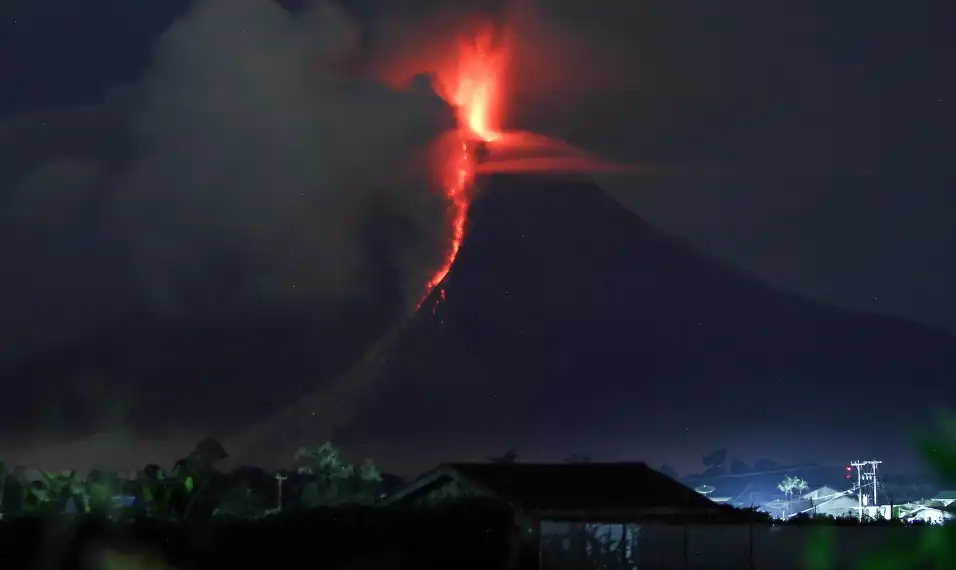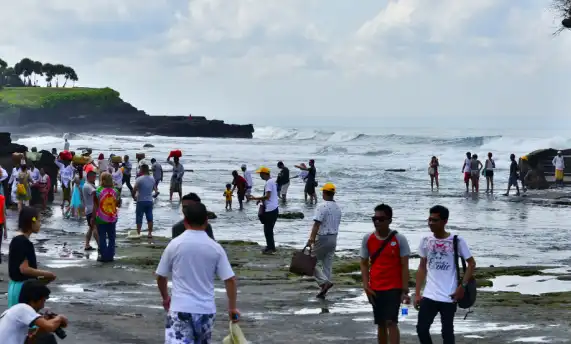Horror of Bali Volcano:Chinese tourists 'overseas safety sounds alarm again
In recent years, with the improvement of residents' income level and the deepening of opening up to the outside world, more and more Chinese people choose to go abroad to experience the customs and culture of foreign countries.
From the ancient castles of Europe to the vast savannas of Africa, from the modern metropolises of North America to the tropical islands of Southeast Asia, Chinese tourists have left their footprints everywhere.
While chasing "poetry and distance," it's evident that some potential risks cannot be ignored. Take Bali, for example, which was once a popular destination for Chinese tourists but has now become a dangerous "no-go zone" due to frequent volcanic activity.
 巴厘岛,以其得天独厚的自然风光和独特的海岛气候,一度被誉为“天堂之岛”。湛蓝的海水、细腻的沙滩、神秘的寺庙……这里似乎拥有了一切人们对美好假期的向往。
巴厘岛,以其得天独厚的自然风光和独特的海岛气候,一度被誉为“天堂之岛”。湛蓝的海水、细腻的沙滩、神秘的寺庙……这里似乎拥有了一切人们对美好假期的向往。
For Chinese tourists, especially those who have lived inland for a long time and yearn for the ocean, Bali is undoubtedly a fantastic travel destination.
As the saying goes:Just as the tourists were immersing themselves in the beauty of this idyllic paradise, the Agung volcano in Bali suddenly awakened, erupting several times and causing a serious tourism crisis.
Volcanic ash darkened the sky, the once-clear water turned opaque, and the idyllic holiday destination was transformed into a nightmare.

In response to the unexpected disaster that led to widespread flight cancellations, causing 17,000 Chinese tourists to be stranded, the Chinese government demonstrated its efficient emergency response capabilities and great concern for the safety of its citizens.
Upon learning of the large number of Chinese tourists stranded in Bali, the government immediately initiated an emergency evacuation plan, issuing 12 consecutive warnings urging Chinese citizens to stay away from dangerous areas. Simultaneously, civil aviation resources were swiftly mobilized with the aim of bringing stranded tourists back to China at all costs.
With a budget of more than 30 million yuan, the evacuation operation demonstrated the country’s unwavering commitment to the safety of its citizens. It sent a clear message to the world:The safety of Chinese citizens, no matter where they are, is one of the issues of most concern to the nation.
Of course, we should also see that this incident exposes that some tourists lack the necessary safety awareness and risk prevention capabilities when traveling abroad.
In their zeal to seek thrills and novel experiences, they often neglect potential risks. Therefore, as tourists themselves, we should also strengthen the learning of safety knowledge and improve our self-protection capabilities.

As globalization deepens, going abroad travel has become the choice for more and more people. However, while enjoying the exotic customs of foreign countries, should we also pay more attention to our safety? Should we evaluate the safety risks of tourist destinations more rationally?
In short, the volcanic eruption in Bali has sounded the alarm for us. While pursuing a wonderful trip, we must always stay vigilant and put safety first. After all, life is only once, and the embrace of the motherland is always our warmest haven.
China's mountains and rivers are magnificent, and its culture is splendid. We have countless scenic spots to be proud of. While exploring the outside world, don't forget to take a closer look at the land under your feet.
